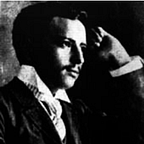Unit 7 — What can you do with training in History?
“There is no life that does not contribute to history.”
— Dorothy West
“A people without the knowledge of their past history, origin, and culture is like a tree without roots.”
— Marcus Garvey
You Majored in What!?*
As this class has attempted to emphasize, History is a dynamic field that requires those of us who practice it to develop a wide range of skills. A few years back, I worked on an initiative called the Tuning Project — an internationally recognized effort to design programs in higher ed that explicitly articulate the skills and abilities that students will acquire through the completion of a degree. In 2012, the American Historical Association took the initiative to apply Tuning to the entire historical discipline in the United States.
I applied to join the effort because I was worried that accreditation boards and university administrators were increasingly imposing “outcomes” for degree programs without having expertise in those fields. The Tuning Project provided History departments, professors, and students alike with a recognized, peer-created outline of the skills and habits of mind that History students will develop over the course of AA, BA, and MA programs in the field.
Over the course of several months, professors representing a variety of universities and community colleges discussed, sometimes heatedly, what makes History a unique discipline and why it’s a valuable pathway for college students in the early twenty-first century. One result of our work was the AHA’s Discipline Core (here’s a link to the current version, last updated in 2016).
In addition to formulating the Discipline Core, our conversations at Tuning meetings focused on ways to communicate to employers and community leaders the value of history education. We quickly realized that attitudes like the one I used as the heading of this section (the “what are you ever going to do with that degree?” attitude) have negatively shaped public perceptions of History, and other liberal arts majors.
Academic historians and History students have the opportunity to remake this image by clearly and concisely communicating the value of historical study to active, informed citizenship and for career paths that value critical thought, research, analysis, argument, and cogent communication in written and non-written forms.
According to the annual National Association of Colleges and Employers (NACE) survey, employers are looking for college graduates who possess these skills:
1. Communication
2. Teamwork
3. Making decisions and solving problems
4. Planning, organizing, and prioritizing
5. Obtaining and processing information
6. Analyzing quantitative data
7. Technical skills related to the job
8. Using computer software
9. Creating and editing written reports
10. Selling and influencing others
[See Lauren Collins, “Talking to Employers about Your Degree: The History Discipline Core on the Job Market.”]
Read “The Landscape after College: Putting Your History Skills to Work” by Sarah Shurts (one of my Tuning Project colleagues), skim over these testimonials from history majors, and view the video below:
Although the purpose of the video is to promote the History program at Ursinas University specifically, the voices that it includes demonstrate the variety of career pathways that history majors find. Were you surprised? Why or why not?
Once you’ve completed the reading and video, create a Medium post in response to one of these two prompts:
- If you are a history major, what specific things factored into your decision to major in history? What do you hope to experience and achieve during your time in college? What new ideas for career pathways did the reading and video present to you? How will the historical thinking skills we’ve been learning in class this semester help you to reach your career goals?
- If you are not a history major, were you surprised by the range of careers that history majors attain? Why or why not? What is your current major (it’s okay if you’re still undecided) and what are some of your career goals? Which historical thinking skills that we’ve been working on in class will help you in your current major and career path, do you think?
Your post to Medium is due by the Sunday of this Unit (November 21) at 11:59 pm MST.
*“You Majored in What?” is the title of a book written by Katharine Brooks in which she outlines potential strategies for figuring out a pathway from college to a career. In particular, she discusses the reality that Humanities majors obtain skills that employers in a variety of fields, not only in education but in sectors like tech, are seeking.
The other part of this Unit is dedicated to research work. Take some time to continue searching for the sources you’ll need for the final project. Review Step 2 of the Research Project for details about the types of sources you’ll need, how to distinguish an *academic* secondary source from other types of secondary sources, and how to format your bibliography. You’ll also find a list of different websites that contain digitized primary sources. If you have others that I’ve not included, please annotate that section of the page to add them.
By the end of the second week of this Unit, create a Medium post to share your bibliography for the final research project. Your bibliography is due on Medium on the Sunday of this Unit (November 21) by 11:59 pm MST. Please note that it is okay to take a little longer with the bibliography if you need to, but I was trying to give you some time off for the Thanksgiving holiday next week. Please do submit your bibliography by the time we come back from Thanksgiving at the latest.
Following this unit, you’ll complete your first draft of the research project and share it with classmates for peer review.
